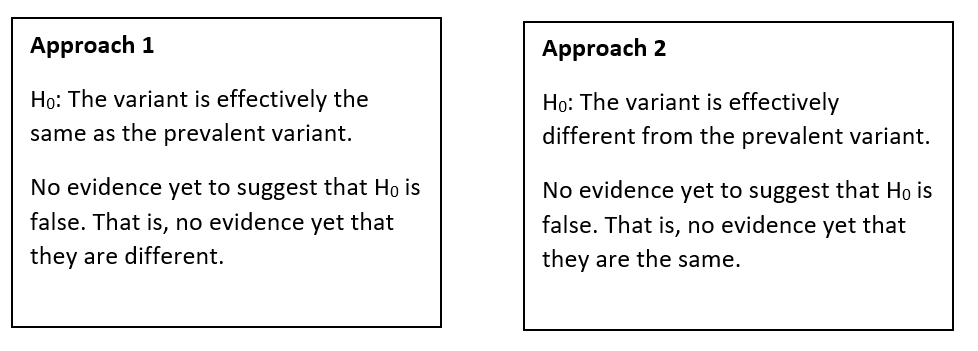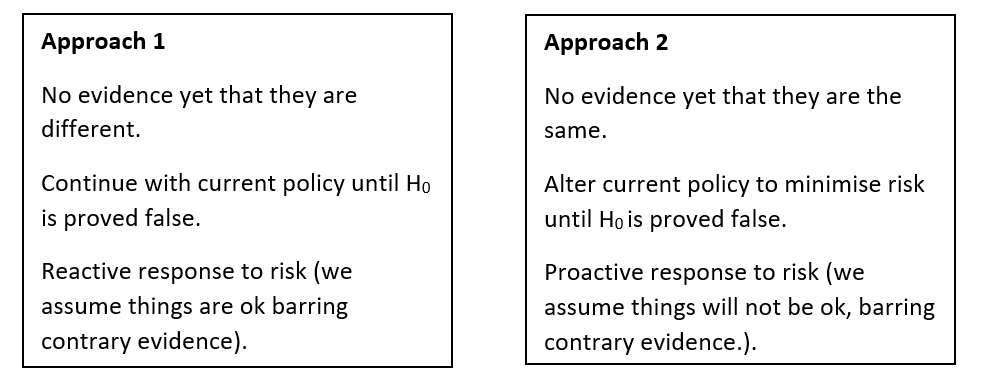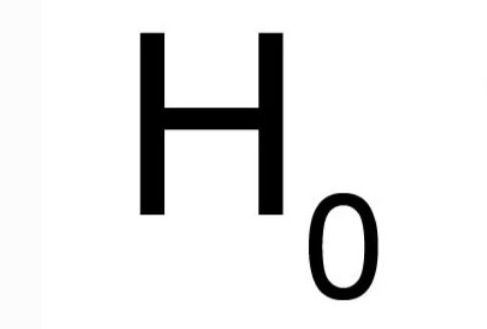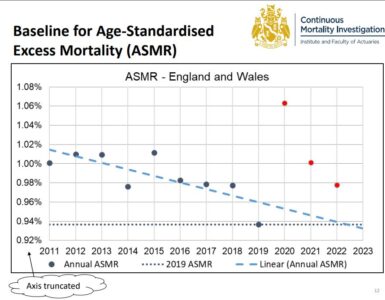There will continue to be variants as the pandemic continues. Even post-pandemic the worry of some resurgence will remain. The obvious question with any variant might seem to be “should we be worried about this variant?” Here though, we consider the importance of the underlying question.
The underlying question relates to our assumed starting position. This is known as a prior assumption (the statement that is assumed true without the need for proof).
Different framing can shed light on different societal public health approaches, and in general decision-making under uncertainty.
Policymakers say they are following the science, which often includes hypothesis testing. Scientists ask what evidence exists to disprove the ‘null hypothesis’? The ‘null hypothesis’ (or H0) is our assumption of normality (the prior assumption).
So, when we hear, ‘no evidence yet’ with regard to properties of a variant, what does this mean? It could mean two things, when the original hypothesis is framed two different ways.
 Framing the original hypothesis differently has a great impact on the resulting decision-making under the uncertainty caused by a lack of evidence.
Framing the original hypothesis differently has a great impact on the resulting decision-making under the uncertainty caused by a lack of evidence.
 This can seem like semantics, but it has real consequences. Approach 1 allows the population to be exposed to a risk while we accumulate evidence. Approach 2 minimises exposure to a risk until it is better understood.
This can seem like semantics, but it has real consequences. Approach 1 allows the population to be exposed to a risk while we accumulate evidence. Approach 2 minimises exposure to a risk until it is better understood.
Under Approach 1, those disproportionately exposed to the virus in society provide the statistical evidence – the canary in the coal mine.
Under Approach 2, societal cohesion is called upon to mitigate a risk not yet fully understood or that poses only a minimal risk at that time. Australia, New Zealand, Singapore and others are examples of minimising exposure early, in order to avoid lengthy Non-Pharmaceutical Interventions after a period of exponential growth.
At the start of the pandemic, these different approaches to framing the hypothesis led to different public health responses. As we continue in our pandemic response, what should our prior assumption be – a state of normality or a state of emergency?
Variants will continue to emerge – at home and abroad – and they will continue to pose a risk. How quickly we respond and how we respond may rely on how we pose the question before the question.















